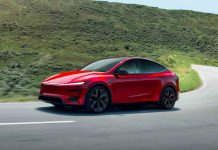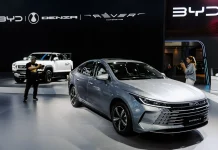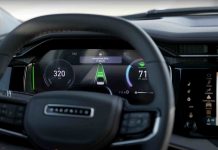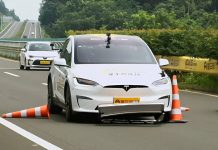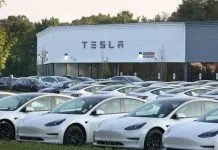The 2025 Tesla Model Y Performance has finally started reaching its customers, and with it come the very first reactions and real-world testing results.
One such popular post comes from X, where the user @EFIEBER_ANDRE shared a video documenting a drag race test from inside the car.
The clip shows the 2025 Tesla Model Y Performance going from 100 km/h to 200 km/h, completing the run in 12.09 seconds at 60% battery charge.
While the number is solid for any standard family SUV, some Tesla fans and experts think it might just be a bit slower than expected. It may be a slower spec for a Tesla carrying the “Performance” badge. Let’s dig deeper!
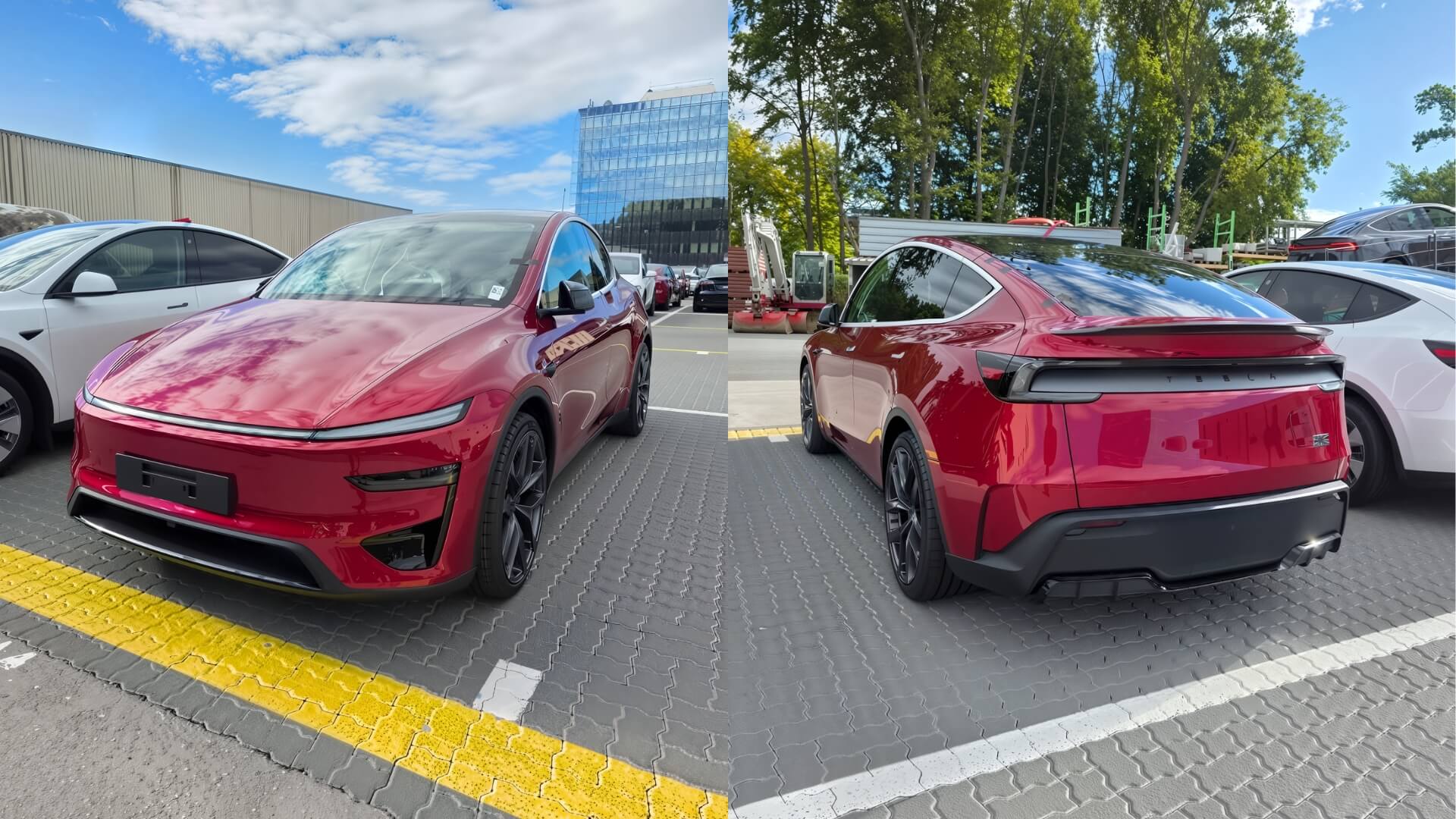
2025 Tesla MYP Drag Race Test
The X video shows the inside of the Tesla during the run, with the screen clearly displaying speed, battery level, and timing data. The car managed to hit 246 km/h, which is close to the promised 250 km/h top speed but still a bit short.
Some other users have also shared their early test results; this website’s test showed that the Performance trim did 0-60 mph in just 3.6 seconds.
For U.S. buyers, the key number is the 0–60 mph time. The 100–200 km/h time is also important because it shows how quickly the car can pass other vehicles on the highway.
For most people, that difference is tiny, but Tesla fans often expect performance models to meet or even beat the numbers at least on paper. One user even criticised how everything starts to shake once the MYP is high on speed on the video post.
Krass wie da alles anfängt zu wackeln. Tesla ist für solche Geschwindigkeiten einfach nicht ausgelegt.
— Tina Trautmann (@tina_trautmann) September 20, 2025
What stood out more was that the car seemed to lose power earlier than expected. This likely explains why the 100–200 km/h run took longer than some predicted. Tesla has done this before, reducing power to protect the battery and keep it from overheating, and it may also be limited by the car’s software settings.
Here’s How the Numbers Stack Up
According to Tesla, the 2025 Model Y Performance can:
- Go from 0–100 km/h in about 3.5 seconds.
- Go from 0–200 km/h in 15–16 seconds
- Reach a top speed of 250 km/h
This means the 100–200 km/h time should normally be anywhere between 11 and 12.5 seconds. Some early testers have even done it in about 10.7 seconds when the battery was near 80% and Sport Mode was on.
So EFIEBER_ANDRE’s 12.09-second run at 60% charge makes sense, but it just makes the stats feel weak for a Performance model.
Why It Might Be Slower?
There are a few reasons why the numbers don’t always line up with expectations:
- Battery State of Charge (SOC) – EVs work best when the battery is around 70–90%. At 60%, the car may not deliver full power.
- Heat Control – Tesla may reduce power to prevent the battery from overheating, especially in a new car.
- Software Limits – Some performance features might be restricted until future software updates. This could explain the early power drop and why the top speed reached only 246 km/h instead of 250 km/h.
EV Performance at Higher Speeds
Electric cars like the Tesla Model Y are incredibly fast from a standstill, but their acceleration can slow down at higher speeds. According to EV Database and discussions on Reddit’s TeslaLounge, this is common for EVs because of how batteries deliver power and how software controls performance.
Compared with gas-powered SUVs like the BMW X3M or Mercedes-AMG GLC63, Tesla may beat them in 0–100 km/h sprints, but those competitors often hold their speed better from 100–200 km/h. This matters especially in places like Germany, where drivers use the Autobahn and care about how quickly a car can accelerate at higher speeds.
What This Means For Model Y Buyers?
So, what’s the takeaway? The 2025 Model Y Performance is still one of the quickest electric SUVs on the market.
With a 0–60 mph time of 3.5–3.6 seconds, strong handling, and all-wheel drive, it offers a mix of family-friendly SUV practicality and sports-car acceleration. But the real-world testing at higher speeds, factors like battery charge, software settings, and thermal limits play a bigger role than marketing claims suggest.
Bottomline
Tesla has a track record of improving cars after launch through over-the-air software updates. It wouldn’t be surprising if future tweaks unlock more consistent power delivery, help the car reach its full 250 km/h top speed, or trim down the 100–200 km/h time.
May be slightly less dominant at Autobahn speeds, but still one of the most capable EV SUVs in its class!














